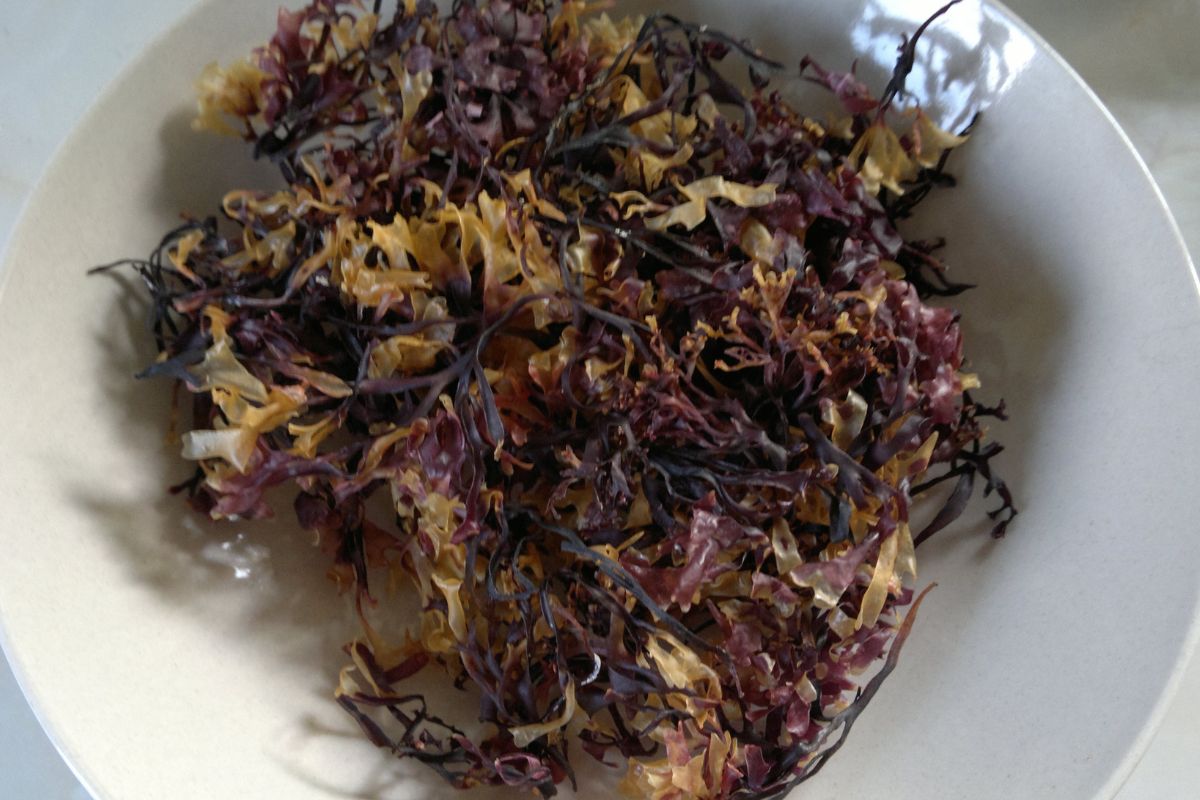
What is carrageenan? Carrageenan is a natural substance extracted from red seaweed, often used in food products for its gelling, thickening, and stabilizing properties. Why is it important? This ingredient plays a crucial role in many everyday items, from dairy products to plant-based milk, and even in some meat products. Is it safe? Yes, carrageenan is generally recognized as safe by major health organizations, though some people may have sensitivities. Where can you find it? Look for it in ice cream, yogurt, almond milk, and even toothpaste. Why should you care? Understanding carrageenan helps you make informed choices about what you consume. Ready to learn more? Let's dive into 35 fascinating facts about this versatile ingredient!
What is Carrageenan?
Carrageenan is a natural substance derived from red seaweed. It’s widely used in the food industry for its gelling, thickening, and stabilizing properties. Understanding its various aspects can help you appreciate its role in everyday products.
- Carrageenan comes from red seaweed, specifically from species like Chondrus crispus.
- It's been used for centuries in Ireland and Scotland to make traditional foods like pudding.
- The name "carrageenan" originates from "Carragheen," an Irish village where the seaweed was first harvested.
Uses of Carrageenan in Food
Carrageenan is a versatile ingredient found in many food products. Its ability to improve texture and stability makes it invaluable.
- It’s commonly used in dairy products like ice cream, yogurt, and chocolate milk.
- Carrageenan helps to stabilize and thicken plant-based milk alternatives, such as almond and soy milk.
- It’s used in processed meats to retain moisture and improve texture.
- Carrageenan is a key ingredient in many desserts, including jellies and custards.
- It’s also found in salad dressings to keep the ingredients from separating.
Health and Safety of Carrageenan
There’s ongoing debate about the health effects of carrageenan. Here are some facts to help you understand the conversation.
- The FDA considers food-grade carrageenan safe for consumption.
- Some studies suggest that degraded carrageenan, which is not used in food, may cause inflammation.
- The European Union has stricter regulations on carrageenan, particularly in infant formulas.
- Carrageenan is often confused with poligeenan, a different substance with potential health risks.
- Many health organizations continue to review the safety of carrageenan to ensure public health.
Carrageenan in Non-Food Products
Beyond food, carrageenan has applications in various industries. Its unique properties make it useful in several non-food products.
- It’s used in toothpaste to help maintain a smooth texture.
- Carrageenan is found in some pharmaceutical products as a stabilizer.
- It’s used in cosmetics, such as lotions and creams, for its thickening properties.
- Carrageenan can be found in air fresheners to help gel the fragrance.
- It’s also used in pet food to improve texture and stability.
Environmental Impact of Carrageenan Production
The production of carrageenan involves harvesting seaweed, which has both positive and negative environmental impacts.
- Seaweed farming can help reduce ocean acidification by absorbing carbon dioxide.
- It provides a habitat for marine life, promoting biodiversity.
- Overharvesting of seaweed can lead to habitat destruction and reduced biodiversity.
- Sustainable farming practices are essential to minimize environmental impact.
- Some regions have implemented regulations to ensure sustainable seaweed harvesting.
Carrageenan and Veganism
Carrageenan is a plant-based ingredient, making it suitable for vegan diets. It’s often used in vegan products to mimic the texture of animal-based ingredients.
- It’s a common ingredient in vegan cheese to replicate the texture of dairy cheese.
- Carrageenan is used in vegan desserts to create a creamy consistency.
- It helps stabilize vegan whipped cream, making it light and fluffy.
- Many vegan meat substitutes contain carrageenan to improve texture and moisture retention.
- It’s also found in vegan sauces and dressings to enhance thickness and stability.
Carrageenan in Scientific Research
Carrageenan’s unique properties make it a subject of interest in scientific research. It’s studied for various potential applications beyond its current uses.
- Researchers are exploring carrageenan’s potential as a drug delivery system.
- It’s being studied for its antiviral properties, particularly against certain strains of viruses.
- Carrageenan is used in tissue engineering to create scaffolds for cell growth.
- It’s being investigated for its potential use in wound healing products.
- Some studies are looking into carrageenan’s ability to encapsulate and deliver probiotics.
Fun Facts About Carrageenan
Carrageenan has some interesting and lesser-known aspects that might surprise you.
- The use of carrageenan dates back to 600 B.C. in China.
- Carrageenan can be used to create edible films and coatings for food preservation.
Carrageenan: A Closer Look
Carrageenan, derived from red seaweed, has a fascinating history and a wide range of uses. From thickening your favorite ice cream to stabilizing toothpaste, this natural additive plays a crucial role in many products. Despite some controversy, most scientific studies have deemed food-grade carrageenan safe for consumption. It's important to differentiate between food-grade and degraded carrageenan, as the latter has been linked to health concerns.
Understanding carrageenan's benefits and potential risks helps make informed choices. Whether you're a foodie, a health enthusiast, or just curious, knowing more about what goes into your food can be empowering. So next time you see carrageenan on a label, you'll know exactly what it is and why it's there. Knowledge is power, especially when it comes to what we eat. Stay curious and keep learning!
Was this page helpful?
Our commitment to delivering trustworthy and engaging content is at the heart of what we do. Each fact on our site is contributed by real users like you, bringing a wealth of diverse insights and information. To ensure the highest standards of accuracy and reliability, our dedicated editors meticulously review each submission. This process guarantees that the facts we share are not only fascinating but also credible. Trust in our commitment to quality and authenticity as you explore and learn with us.
